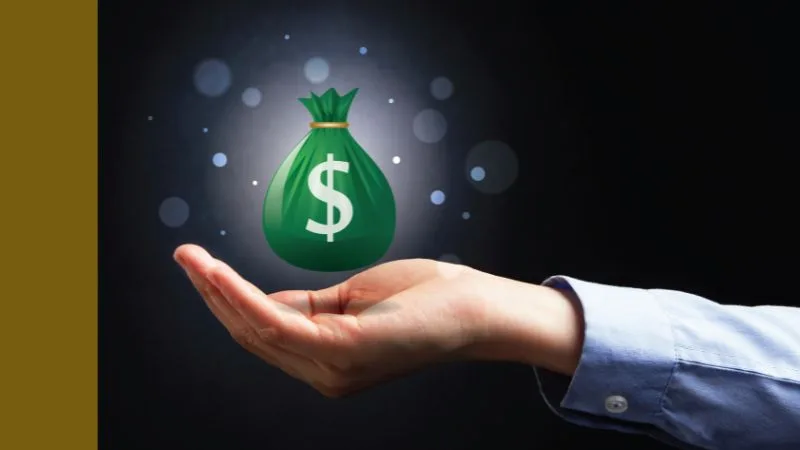On 20 February, the share market’s bellwether index, the S&P/ASX 200 (ASX: XJO), peaked at 7,162 points after a frenetic start to 2020. But five weeks later, it hit 4,546 on 23 March – a 36.5% drop – with most of the ‘smart money’ expecting it to go lower. It was not to be.
The start of this week marked the fifth straight month of gains and a 33% rally from the March lows; those who sold amid the volatility have now truly been left behind. The smart money is not looking quite so smart.
An inevitable collapse
The earlier market collapse was almost inevitable once it became apparent that its cause – a global pandemic and the deep recession it’s fuelling – would extract a fearful toll both in terms of human life and economic activity. Hospitals overflowing, jobless queues growing, borders closed, countries shut down; that’s the new global norm.
This state of affairs is not about to end soon. COVID-19 is not showing any sign of abating (just ask New Zealand), with a vaccine breakthrough providing a quick fix more the figment of desperate politicians’ imagination than a medical reality as they all struggle to find the right policy settings for a once-in-a-lifetime pandemic that is here to stay.
Australia illustrates the case. Although some argue we have managed the virus better than most countries, six months later the second most populous state is in Stage 4 lockdown, all states have closed their borders to varying degrees, and unemployment has marched past one million, and that’s with the most generous government assistance packages in this country’s history that is coming to an end. When it does, it’s anyone’s guess what will happen.
Millennials the driving force
Yet the share market keeps marching on, seemingly immune to the economic carnage that COVID-19 is inflicting. But it’s a march to a different beat, with this buying spree appearing to be driven by retail investors, many of them Millennials. Not only are they young, but many are market virgins, judging by the number of new broker accounts being opened.
At Raiz invest Ltd (ASX: RZI), where Millennials account for the bulk of our customers, we have enjoyed some of our best months of money inflows since this crisis erupted, despite the fact some of them would have lost their jobs.
It’s the institutions, the professional investors, the so-called wiser heads, who seem to be sitting on the sidelines, waiting for this bubble to be pricked.
The “Robinhood effect”
So why the optimism, this sudden urge to invest in equities by this different investing cohort? Clearly there’s no simple answer. Behavioural economists will study this phenomenon for years to come, and even then, I suspect conclusive answers will be hard to find.
This rally is being described as the “Robinhood effect”, a reference to the US mobile-app retail broking platform that couples commission-free trading with a slick user interface that allows easy access to shares, options and cryptocurrencies. Millennials are flocking to it.
As CEO of a company with a large Millennial customer base, this does not surprise. I believe this surge in online share trading and investing is part of global trend that the COVID-19 lockdowns have accelerated. And when retail customers move online, there’s precious little loyalty to traditional brands.
Rather, these market novices are embracing that feeling of control that online trading gives them; the freedom to make their own decisions on when to buy or sell. In a world where so much is beyond their control, this is something they can control.
It largely means that the established broking houses, and the research they offer, are off their radar. The cost of trading and what they are hearing online in various social media platforms and forums are influencing their trading patterns. Like all rallies, herd mentality is playing a role too. Although it’s social media fuelling it, the group think is no different to the high-tech boom of the late 1990s, the Poseidon mining rally of 1969-70, or, for those with a historical bent, Tulip mania in the Netherlands in the 17th century.
This time around, the buy now, pay later group of companies have rallied significantly in Australia, which includes the likes of Afterpay Ltd (ASX: APT) and Zip Co Ltd (ASX: Z1P). In the US (it’s not just an Australian happening), it has been the large tech stocks such as Amazon (NASDAQ: AMZN) and Apple (NASDAQ: AAPL) that are also easily accessible to Australian investors via online broking.
What happens next?
How long this rally will last is like asking how long’s a piece a string. There are signs this optimism is fading as trading volumes on the ASX normalise and the growing realisation there is no silver bullet, such as a vaccine, to cure COVID-19, and that lockdowns, in one form or another, are part of our daily lives for the foreseeable future.
September, typically a time of tight cash liquidity that leads to high market volatility, could prove another hurdle for retail investors. It could be compounded this year because of unregulated hedge fund positions in the US, if a warning by the Fed Chair is any indication (and they often are). And any market ripples in the US will invariably lap up on our shores.
ASIC, too, is starting to raise its regulatory eye at this rally, worried that it will leave many of these newcomers a lot lighter in their wallets and purses at the very time they can least afford it. The regulator has social media platforms such as Twitter, Facebook, and Reddit in its sights for their hyperbole about profits to be made in the market.
It’s also concerned about these investors’ focus on speculative stocks, the “penny dreadfuls”, which can so easily leave investors high and dry when a market rumour is exposed as just that – a rumour. What ASIC can do to cool this market activity is a moot point, but the fact it is publicly expressing its concerns could have a dampening effect.
Silver lining
Like all market rallies, it will end. Certainly, that’s what the top end of town believes, and continues to keep its powder dry. And in any market correction, there will be losers. That’s inevitable.
But there is a silver lining. A new cohort of investors have been introduced to the market and, whatever the outcome in the short term, the lessons they learn in the “COVID-19 rally” will hold them in good stead for the long term.











